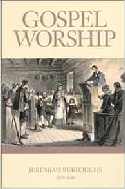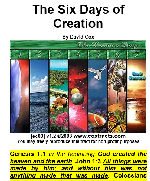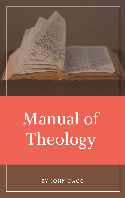Ads
9. The Holy Spirit possesses Holiness, makes holy is a short Bible study on defining what holiness, being holy, really is, and how the Holy Spirit makes us holy.
A Definition of Holy, Holiness
We must understand that while God existed before there was a creation of physical things, and God created all things that exist, we must not “conflate” (merge two different concepts to be identical in every way) creation with God. In other words, God acted, but God is not creation. What is creation is not what is God. They are two separate things, one caused (creation) by the other (God).
The concept of holiness is integral to the concept of God. God is holy (1 Peter 1:15-16). God had that quality before He created the universe, everything that is created. But God has different purposes in mind when He created different things. (2 Timothy 2:20 But in a great house there are not only vessels of gold and of silver, but also of wood and of earth; and some to honour, and some to dishonour. 2 Timothy 2:21 If a man therefore purge himself from these, he shall be a vessel unto honour, sanctified, and meet for the master’s use, and prepared unto every good work.) and a thing created can change from honor to dishonor. The concept is not that everything is holy when created, but everything is created “normal” or “common”, and God elevates some vessels to honor, and others fall into dishonor.
When sin entered into the universe, now there is a quality to a thing or person of being dishonoring to God. God dwells “in holiness“, or in other words, everything that is closely associated with God is holy. On a more basic level, the things of the temple were not necessarily dishonorable, they were “common“. When the Levites used these things in the service of God, in the house of God, they “sanctified them” (made them holy) for use in the temple. The idea behind this is that a person (always a person has to do this, be it man or God) will “set apart” something specially for the use of God in how God wants to use it.
This is the concept inherent in tithes and offerings. It is not that God “needs” our money, but that God wants us to worship Him, and this giving to God or setting apart something special for the use of God only is in focus in what the Bible says about giving to God. The concept of “anathema” is the abomination of giving something to God, for God to use as He sees fit, and then after it is formally given even if it is not in the temple or church but designated for that purpose, then to take that thing back makes the offering a blasphemy to the individual. The individual is trying to taunt God by saying “This is yours God.” then “No God, I take it back. I am going to use it for my purposes.” Consider the drink offering.
This was wine or oil or some liquid that is costly and given to God. God does not eat the lamb on the sacrifice, nor does He drink the wine or oil. So in a way, it is a waste of a good (costly) commercial product. But that is not right. God sees the heart, and the fact that somebody has “set aside the thing from their own use” in order to honor God, that makes the offering what it is.
So being holy means that a thing is no longer for the common use of the person or the world. It is “set aside” as being special for God. That is what holy means. But the concept is so tightly involved with the essence of God, and it is not just worship and service to God. God is worthy of special honor. He is great, magnificent. Glory belongs to God. Honor belongs to God. Satan’s error was to want that same glory and honor for himself instead of giving it to God.
But holy also extends to “how things are done“. This is like the methodology of doing something. For example, to offer an offering to God, there is a prescribed way that pleases God. 1 Samuel 2:12-4:11 relates the sins of the sons of Eli. They were priests as well as Eli.
The act of receiving an offering from the people and offering it to God was not a sin. It was what they were supposed to be doing as priests. The problem came in the methodology, or how they were doing what they were doing. Again, a spirit is much more than an animating force. Jonathan took a little honey on the day of battle, and it was an animating force for his labors that day. But a spirit also has associated with it, bound up in itself, moral character. The error of Hophni and Phineas was how they did what they did.
1 Samuel 2:12 Now the sons of Eli were sons of Belial; they knew not the LORD.
They served God as His priests without having a personal saving relationship with God. That is the root of their error. People like that normally descend into whatever is financially beneficial to them is what they do and approve of. Instead of taking the part of the offering that God prescribed in Leviticus 7:30-34, the breast, they grabbed all they could. Moreover, they were having sex with the women of Israel (1 Samuel 2:22) in direct contradiction of God’s prohibition (Exodus 20:14). So key to understanding what is holy is to understand God and what pleases Him, and what infuriates Him.
The “holiness of God” or His way of being special, not earthly, not common, not involved in the mud of the sinful world is what God expects us to follow, “Be holy, for I am holy.” (Lev 11:44-45; 19:2; 20:7, 26; 21:8; Deu 23:14; 1 Pet 1:15-16; 2:9; Eph 1:4) These verses and many more commands us to be holy as God is holy. Holiness then is a key concept for Christians to pattern their lives. The idea in these verses is that the daily lives of believers in Jehovah, in God, have to conform to this holiness concept. Without it, the person is only fooling themselves into believing they are saved when they are not.
Hebrews 12:14 Follow peace with all men, and holiness, without which no man shall see the Lord:
Psalms 34:14 Depart from evil, and do good; seek peace, and pursue it.
Matthew 5:8 Blessed are the pure in heart: for they shall see God.
1 John 3:3 And every man that hath this hope in him purifieth himself, even as he is pure.
Revelation 21:24 And the nations of them which are saved shall walk in the light of it: and the kings of the earth do bring their glory and honour into it. Revelation 21:25 And the gates of it shall not be shut at all by day: for there shall be no night there. Revelation 21:26 And they shall bring the glory and honour of the nations into it. Revelation 21:27 And there shall in no wise enter into it any thing that defileth, neither whatsoever worketh abomination, or maketh a lie: but they which are written in the Lamb’s book of life.
Revelation 22:11 He that is unjust, let him be unjust still: and he which is filthy, let him be filthy still: and he that is righteous, let him be righteous still: and he that is holy, let him be holy still. Revelation 22:12 And, behold, I come quickly; and my reward is with me, to give every man according as his work shall be. Revelation 22:13 I am Alpha and Omega, the beginning and the end, the first and the last. Revelation 22:14 Blessed are they that do his commandments, that they may have right to the tree of life, and may enter in through the gates into the city. Revelation 22:15 For without are dogs, and sorcerers, and whoremongers, and murderers, and idolaters, and whosoever loveth and maketh a lie.
Holiness is essential in our salvation, then. We need to understand very clearly, that we enter into or obtain salvation by having faith in the saving work of Jesus Christ, but that saving faith, we once being saved, must produce a life that is worthy of a child of God (Phil 1:6 “hath begun a good work in you will perform it until the day of Jesus Christ”). In other words, God’s rule is to give every man according to their works, and so then why would any saved person live a life of sin? Those who sin are excluded from heaven.
2 Corinthians 7:1 Having therefore these promises, dearly beloved, let us cleanse ourselves from all filthiness of the flesh and spirit, perfecting holiness in the fear of God.
Romans 12:2 And be not conformed to this world: but be ye transformed by the renewing of your mind, that ye may prove what is that good, and acceptable, and perfect, will of God.
Our lives should be examples of the moral character of Jesus Christ. (Mat 11:29; 5:48 “perfect” means complete, adult, mature; Luke 6:11, 40, 46; Jn 13:13-17; 14:15; Rom 6:4; 1 Cor 11:1; 2 Cor 5:17; Eph 2:10; 5:1-2; 4:22-24; Gal 2:20; 3:27; Pro 3:5-6; 1 John 2:6; 3:2-3, 7; 1 Peter 2:9, 21). Psalms 17:15 As for me, I will behold thy face in righteousness: I shall be satisfied, when I awake, with thy likeness. The real problem of many Christians is that they neither are satisfied with the holiness of God nor do they like how God is. These people like their sin.
The Holy Spirit imposes holiness on everything connected with Him
But if we can understand that God has a “way” or “road” as the OT sometimes expresses the concept, that is particular to God, it is sin to think up other ways of living life. That is what Satan did, and it got him kicked out of heaven.
Romans 8:9 But ye are not in the flesh, but in the Spirit, if so be that the Spirit of God dwell in you. Now if any man have not the Spirit of Christ, he is none of his.
1 Corinthians 6:19 What? know ye not that your body is the temple of the Holy Ghost which is in you, which ye have of God, and ye are not your own?
To be saved is to have the promise of the Holy Spirit dwelling inside of you forever. That fact means that the Christian will not live forever enjoying his sin. His sin is abhorrent to him. He rejects it as being bad for his life. The true believer follows God and models his life morally after God’s principles. He conforms his life to what pleases God. If that attitude is not permeating the Christian’s mind and heart (“if any man have not the Spirit of Christ“), then as Paul says “he is none of his“, i.e. that person has nothing to do with God nor God’s salvation, he is unsaved. The Holy Spirit “possesses” (controls what he thinks, his attitudes, what he does) the believer and owns him, and makes him holy, acceptable before God. That indwelling Holy Spirit, or Spirit of Holiness, “will give the person life” (Rom 8:11), and that person will be holy, set apart for God, and even be the temple of God where God dwells (1 Cor 3:16; 2 Cor 6:16).
If we can somehow see and understand how within the Trinity, that Triune God desires man’s salvation, and God the Father drew up the plan for this, Jesus executed it by dying on the cross, and the Holy Spirit completes this salvation by actually making each person more like God, i.e. holy.
This study is just one chapter of 200+ chapters of a larger work by Pastor-Missionary David Cox, Study Notes on the Holy Spirit.
See these posts for more chapters from Coxs Holy Spirit Notes
- God as Creator
- Fruit of a False Prophet and the Bible
- Friesen, G. – Decision Making and the Will of God
- Free-Stuart – How to Read the Bible for all its Worth
- FP: Using Scripture or Following Scripture?
- FP: Unshackled from God’s Will
- FP: The Fruit of a False Prophet Obedience part 3
- FP: The Burden to Confront Sin
- FP: The Bad Fruit of a False Prophet part 2b
- FP: The Bad Fruit of a False Prophet part 2
This study is a work in progress. For a momentary snapshot of the table of Contents (I am adding and changing titles all the time), see Coxs Holy Spirit Notes

Burroughs Gospel Worship 14 chapters (263 pages) which are each a sermon on how to properly worship God. (format PDF)
“Jeremiah Burroughs’ Gospel Worship has greatly influenced my understanding of biblical worship. It is one of the most important books I have ever read.”
–R.C. Sproul
Download: Burroughs Gospel Worship.







